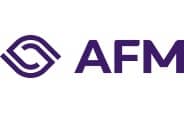
Points for attention for listed companies in their 2023 reporting
The Dutch Authority for the Financial Markets (AFM) and the European Securities and Market Authority (ESMA) would like to take this opportunity to ask listed companies to pay extra attention to certain key areas when preparing their 2023 report. These areas are also relevant for audit committees supervising the reporting process and for audit firms performing the audit on the reporting. The AFM will particularly focus on these areas in its supervision on the 2023 reporting.
Be transparent about net-zero commitments
The AFM calls on companies to be transparent about net-zero commitments in their reporting. It is encouraging to see that an increasing number of companies provide information about their net-zero commitments. In particular, the disclosures up to 2030 are becoming increasingly concrete. Based on a study of net-zero commitments in the 2022 annual reports, the AFM identifies the following areas for improvement:
- We encourage companies to be clearer about their plans to achieve a net-zero final goal (often 2050) and about the uncertainties and possible positive or negative side effects of their plans.
- It is essential to maintain a clear definition of reported scopes (Scope 1, 2 and 3) both in describing the future goals as well as in reporting on emissions in previous years. In addition to transparency on CO2, transparency on other greenhouse gases from the Greenhouse Gas Protocol is also relevant.
- Many companies make use of carbon credits, offsets or removals in addition to emission reductions to achieve net-zero emissions. We encourage companies to be clear about the extent to and the manner in which use was made of carbon credits, for example by mentioning the types of carbon credits used.
- Insight into the achievement of net-zero commitments requires reliable data. It is important that companies are transparent about the internal management involving sustainability data, including the data collection process and the possible use of estimates.
The CSRD more explicitly requires reporting on double materiality
The first major listed companies will apply the Corporate Sustainability Reporting Directive (CSRD) as of 1 January 2024. The CSRD more specifically stipulates that this sustainability report has to be based on the principle of double materiality. This means that companies need to report on both the impact (financial and otherwise) of the environment, such as climate change, on the company (the internal impact of external developments) and their positive and negative effects on the environment and society (the external impact of internal activities).
Check out ESMA’s key examples and recommendations on climate-related disclosures
ESMA recently published the report titled ‘The Heat is On: Disclosures of Climate-Related Matters in the Financial Statements’. This report includes key examples of climate-related disclosures. Like ESMA, we call on companies to take note of the examples and recommendations set out in this report.
Taxonomy requires solid qualitative disclosures
ESMA recently published the results of a study on Article 8 taxonomy disclosures. The European Taxonomy Regulation requires companies subject to the BNFI to be transparent about the extent to which their economic activities may be classified as sustainable. Among other things, this study shows that the required qualitative disclosures have to improve for 40% of the companies surveyed, as some of these disclosures are incomplete or lacking. We therefore require a strong focus on this.
Use of ESMA Guidelines when applying alternative performance measures (APMs)
APMs may serve a useful role in communications between the company and its investors and analysts. It is essential to comply with the ESMA Guidelines on Alternative Performance Measures. In doing so, listed companies should particularly address prominence of the APMs in relation to the IFRS figures, the definition of and explanatory notes to the use of the APMs and reconciliation to the IFRS figures. Our preliminary results of the review of 2022 reporting and 2023 half-year reporting shows that this does not appear to be going well for most companies reviewed.
Applying the European Single Electronic Format (ESEF) correctly
Listed companies must make their annual reports publicly available in digital form using the European Single Electronic Format (ESEF). We call on companies to at least make sure that:
- the block tagging is complete;
- in any event, the primary consolidated overviews such as the balance sheet are tagged with an element of the baseline taxonomy that best describes what the figure in the overview represents;
- a proprietary extension element is created only if no suitable element is available in the baseline taxonomy;
- the information in the required block tagging is legible.
Taking note of the ESMA European Common Enforcement Priorities
ESMA also recently published its annual statement on reporting issues on which ESMA and national supervisory authorities will focus for the 2023 reporting. Like the AFM, ESMA prioritises relevant climate-related information. ESMA stresses the importance of consistency between the non-financial statements and the information in the other components of the reporting, including the financial statements. This particularly applies to climate-related claims and goals. ESMA also highlights the relevance of transparency on the impact of macroeconomic conditions.
Contact for this article

Would you like to receive the latest news from AFM?
Subscribe to our newsletter, we will keep you up-to-date.